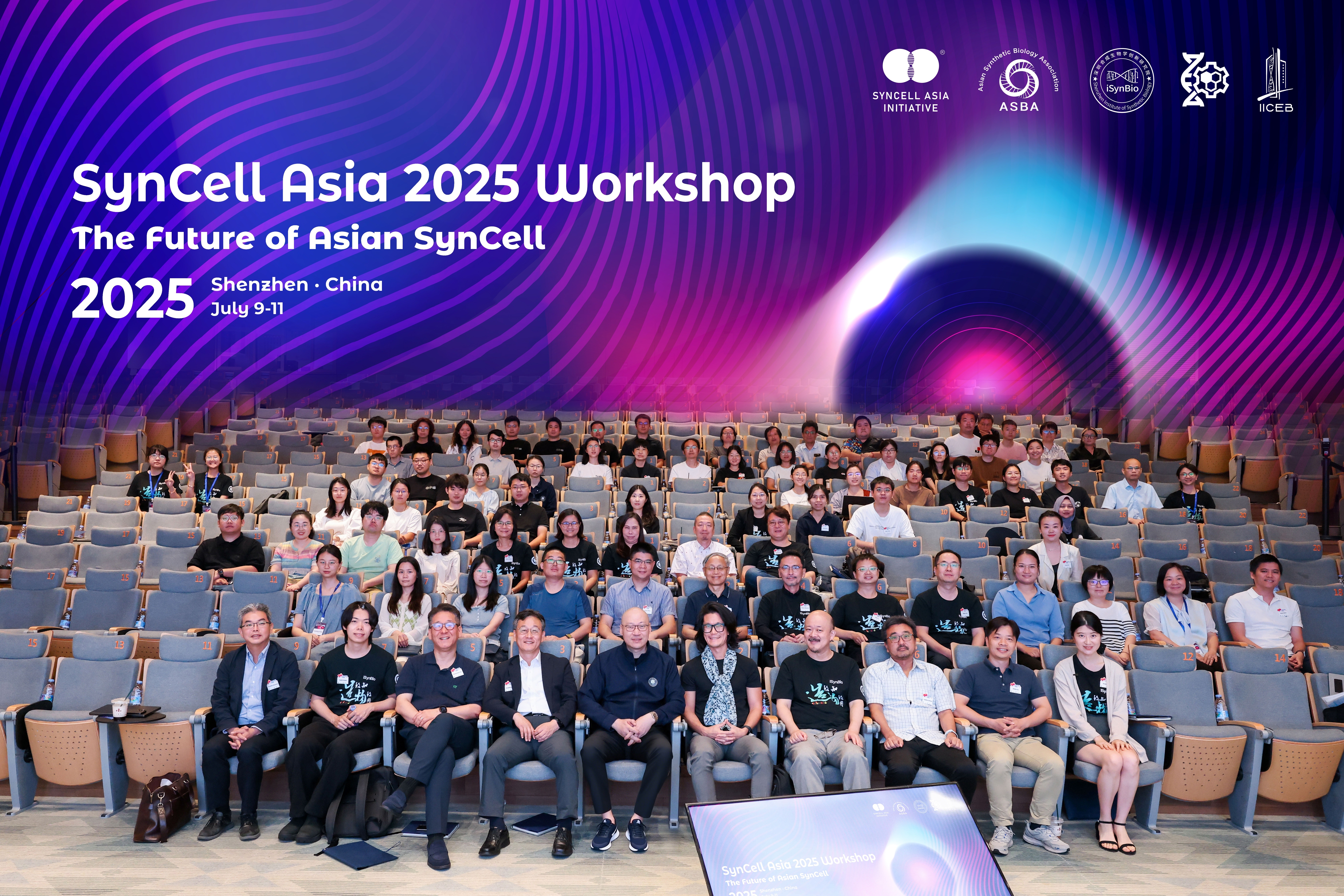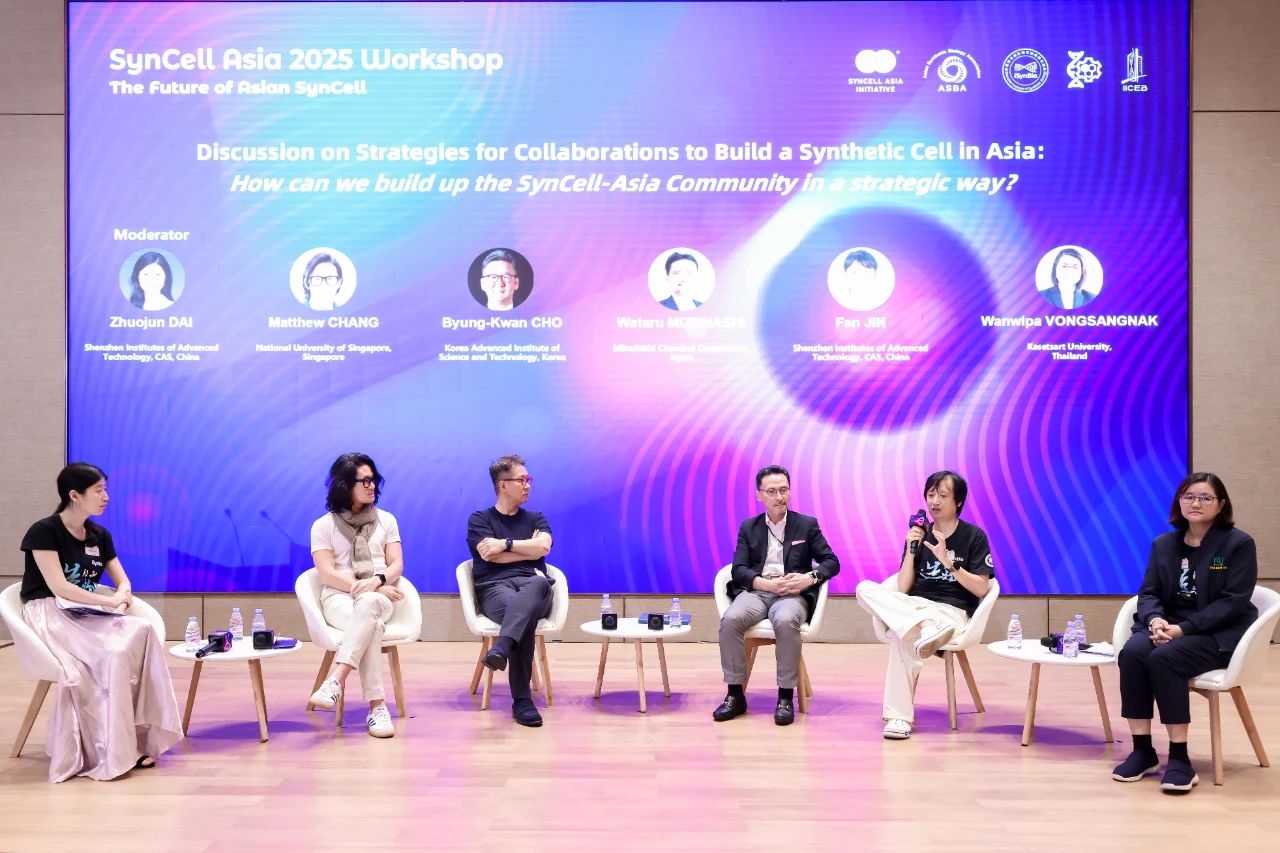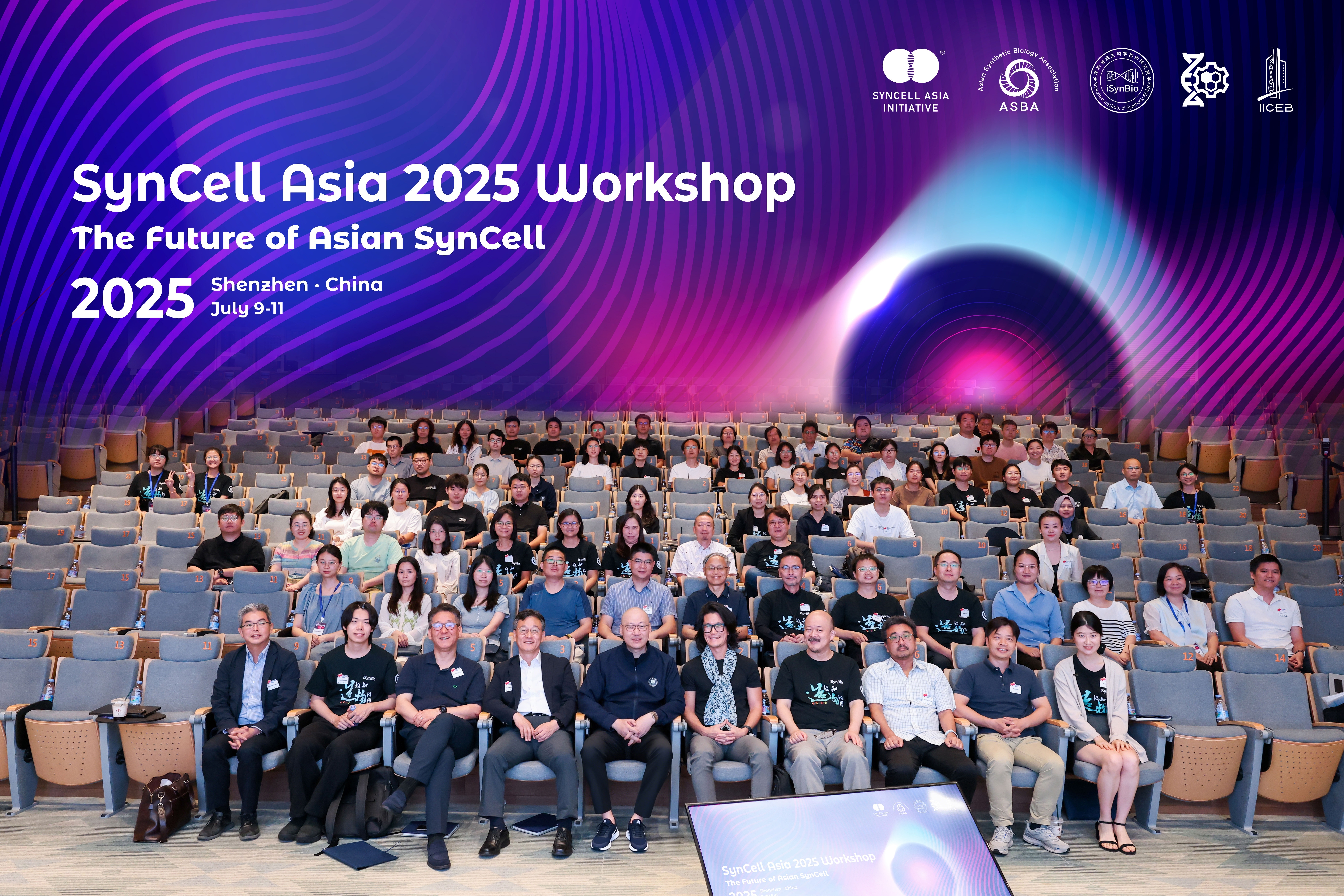
-
Date(s)
09/07/2025–11/07/2025
-
Address
Shenzhen, China
The SynCell Asia 2025 Workshop was successfully held from July 9 to 11 in Shenzhen. The event was jointly organized by the Shenzhen Institute of Advanced Technology, Chinese Academy of Sciences and the Asian Synthetic Biology Association (ASBA).
As a key installment in the ongoing SynCell Asia Workshop series, this year's conference convened under the theme "The Future of Asian SynCell", bringing together leading experts and scholars from six Asian countries, including Japan, South Korea, Singapore, Thailand, Malaysia, and China. Participants engaged in in-depth discussions on the latest scientific advances and core technological challenges in synthetic cell research, exploring pathways for joint projects, regional collaboration, open resource sharing, and the development of a global cooperation framework.
In his opening address, Dr Chenli Liu, Co-Chair of the conference and President of SIAT, reflected on two landmark achievements in Asian synthetic cell cooperation: the establishment of the SynCell Asia Initiative in 2023, founded by six Asian nations, and the opening of the SynCell Global Summit in 2024, jointly promoted by leading scientists from 15 countries across five continents.
Conference Co-Chairs Professor Byung-Kwan Cho, Vice President of the Korea Advanced Institute of Science and Technology (KAIST), and Professor Matthew Wook Chang of the National University of Singapore, commended ASBA's significant contributions over the past seven years in expanding its reach and enhancing its global influence. They emphasized the workshop's focus on building a dynamic SynCell Asia research community to strengthen collaboration among member institutions and nurture the next generation of scientific talent. It was also announced that the upcoming ASBA Annual Conference in South Korea this December will feature a dedicated Synthetic Cell Forum, reinforcing this strategic dialogue platform.
Throughout the workshop, leading experts delivered keynote presentations on core topics such as synthetic cell functionality, foundational theory, self-replication mechanisms, and practical applications. Strategic planning and implementation pathways for the SynCell Asia research community were also thoroughly discussed.

A notable innovation this year was the introduction of the "New Scholars Forum", which provided a platform for emerging researchers to exchange cutting-edge ideas and share interdisciplinary insights. This initiative supports the joint training of young scientific talent and aims to cultivate future leaders in synthetic biology across Asia.
Looking ahead, SynCell Asia will continue to deepen regional cooperation with an open and inclusive approach, innovate international research collaboration mechanisms, and unite Asian expertise to overcome key technological challenges in synthetic cell research. Through resource complementarity and knowledge sharing, the initiative seeks to consistently enhance Asia's collective innovation capacity and global influence in synthetic cell research.


